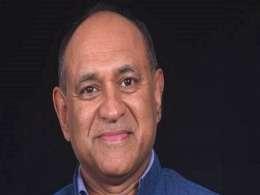Healthcare industry is looking forward to get infrastructure status, cut in import duties for equipment and raw materials, innovative social insurance to boost healthcare spending, more public-private partnerships in healthcare delivery and overhaul of medical education to boost supply of doctors, as part of its wish list from the upcoming Union Budget.
Here are some views from a cross section of stakeholders, be it drugmakers, hospital operators, diagnostics firms and investors in the field.
Kiran Mazumdar Shaw, CMD, Biocon
The sector must be exempted from service tax and Minimum Alternate Tax (MAT) on exports. The government needs to provide incentives for nurturing innovation and encouraging breakthrough research. At least 75 per cent of the annual R&D must be deployed in innovation in life sciences across the value chain from discovery to commercialisation. There should be incentives to encourage the flow of capital through seed funds, risk capital and venture funds to Small and Medium Enterprises (SMEs) in the sector. There should be full tax exemption for angel investors and CSR (Corporate Social Responsibility) funds co-investing in government-backed innovative research in partnership with Biotechnology Industry Research Assistance Council (BIRAC).
All SEBI-registered funds as well as CSR funds investing in government-backed accelerators and incubators should be eligible for R&D-related weighted tax deduction. Also, we need to create a corpus of Rs 500 crore to be utilised for underwriting 50 per cent of the value of pharma & biotech-related IPOs on SME exchanges. All indigenously developed biotech drugs should be exempted from taxes and excise duty. Also, government tenders must give a 15-20 per cent weighted advantage to indigenously produced drugs. To incentivise biopharma players, biologic drugs should be exempt from price control for five years. All essential drugs and those for chronic diseases such as diabetes, cancer, cardiovascular, renal and pulmonary should be exempted from tax.
Ramesh Swaminathan, CFO, Lupin
There can be more export incentives that can be given in terms of duty drops from non-SEZs, also because the impact of taxes has been higher. I feel we could have higher weight introduction for R&D because there are a lot of uncertainties pertaining to that.
The government can help in the growth of health and pharma sector by ensuring better infrastructure of healthcare. Ultimately, the growth of the pharmaceutical sector is highly dependent on the healthcare industry.
Ameera Shah, CEO, Metropolis
The allocations for the health sector in Budget 2013-14 were abysmally low and diagnostics as an industry was completely ignored in the budget.
Section 80D of the Income Tax Act provides for deduction of health insurance premium from gross total income. A provision was made for deduction on account of expenditure on preventive health check-up up to Rs 5,000 in 2012. This should be made separate from the Rs 15,000 that one pays for a health insurance policy.
What India needs is a strong regulatory body that will represent each segment of the healthcare industry. It is important to spread awareness on accreditations and maintenance of basic quality standards, whether it is a hospital or a laboratory. A large part of the healthcare industry still remains unorganised.
The government should develop a social insurance model that can take healthcare access to those who cannot afford interest rates by large insurance players.
It’s high time that government sets a regulation for diagnostic testing to be covered under insurance. In the existing model a person is required to get hospitalised for availing insurance and this is an added burden despite people investing in their health.
A Velumani, chairman, Thyrocare
The upcoming budget should abolish all custom duties for diagnostic reagents and instruments. As it is the healthcare cost in India is such that most of the Indian population cannot afford healthcare; then why add to the cost by adding duties?
No one in the county knows the cost of a healthcare test as every company decides his own rate, we need standardisation of pricing throughout the country; plus or minus 10 per cent should not be penalised. Anything more than double should be penalised.
The government should now make sure that there is a proper public private partnership to make full use of the government infrastructure available in the country to deliver solutions. The government has infrastructure, manpower but all are not together available at the same time. I believe if it is handed over to a private party they should be able to deliver proper services to the common man. The efficiency of the private sector needs to be explored.
Daljit Singh, president, Fortis Healthcare
We have five expectations from the government—lowering the cost of setting up hospitals; lowering the cost of running the hospitals; healthcare financing, enabling people to pay for healthcare; encouraging quality and innovation and lastly implementing recommendations. The most important of these is to reduce the cost of setting up hospitals.
I feel the government needs to increase its own funding in healthcare; it needs to make the infrastructure worth it and also promote a PPP model. It may look at moving away from providing services as it is not able to manage that well; that should be given to the private sector.
Sudarshan Ballal, medical director & chairman – medical advisory board, Manipal Health
Revamping of the healthcare infrastructure should be the focus along with upgrading the primary healthcare systems to provide preventive and primary healthcare with the government taking more of an insurer’s role in the tertiary and quaternary healthcare.
There is a need for a massive exercise in increasing skilled healthcare workers to bridge the gap between demand and supply through liberalisation of medical education policy to allow more doctors especially at postgraduate levels to be trained at corporate/private hospitals.
Amit Varma, co-founder and managing partner, Quadria Capital
The healthcare industry needs infrastructure status that is extremely important keeping in mind the demand and supply gap in the industry. A lot more thought must to be given to universal coverage.
Lastly, there needs to be a radical shift in the way medical education runs and is licensed in the country. We have created an artificial bottleneck in this country by not allowing medical and pharma colleges to come up; that has led towards a huge scarcity of general practitioners and some specialists and we need to be creating at least 10 times more doctors, pharmacists, etc to be self sustaining.
Preet Pal Thakur, vice president, Asian Healthcare Fund
We have lost focus on the traditional forms of Indian medicine like ayurveda, homeopathy and others; we need to rejuvenate these forms of medicine as such medications are also getting acceptance globally.
India is at a very nascent stage when it comes to medical device sector; so the government needs to reduce the duty on raw material for the manufacturing sector of medical devices. We also want to see more focus on the use of technology in the Indian healthcare like telemedicine, etc. So we would like to see a greater emphasis and money allocation in PPP model, technology and telemedicine which can be a big help in improving primary healthcare in India.
(Edited by Joby Puthuparampil Johnson)






